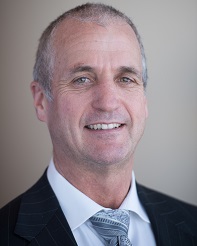A dairy farmer based in Brown County says recent rainfall represents “the final dagger in the heart” during a challenging year for farmers.
Gordon Speirs, the owner of Shiloh Dairy, described some of the challenges his farm is facing, according to a recent release from the Edge Dairy Farmer Cooperative.
The co-op performs product verification and also advocates for dairy communities, lobbying at the national level. Edge has weighed in on issues surrounding farm siting, dairy labeling, funding for dairy research and other pressing issues for Wisconsin farmers.
At Speirs’ operation in Greenleaf, difficult weather conditions have led to significant strain, even as dairy producers are seeing “some price relief.”
“But it feels like we will be giving all of our profits back again this year, due to the added costs and reduced yields,” he said.
Around this time last year, consistent rains began in September and wet conditions continued through the fall. Speirs explains that field work wasn’t finished before cold weather, and tasks such as emptying manure pits went unfinished.
Those problems carried through to a wet spring, as much of Speirs’ alfalfa hay crops didn’t survive the winter. The planting of new alfalfa was delayed, as was this year’s corn crop. He explains a small window for planting corn opened up in late May, but “then the rains came again.”
Most of the corn was planted by June 12 in subpar conditions, according to Speirs, while other fields that took longer to dry were planted later that month. But he says it was clear from late May that this year’s corn harvest would be delayed.
Speirs says Shiloh Dairy normally takes four cuttings of hay, but the first three of this year were “challenged by wet fields,” as heavy equipment can’t be used in those conditions. The fourth cutting, which was due to be harvested on Sept. 10, is still in the field.
“We are waiting for a killing frost to allow us to harvest the crop, but we still aren’t sure if the ground will be hard enough,” he said.
In the report from Edge, Speirs explains these weather-related hiccups are driving higher costs on the farm.
“Normally we need a silage chopper with four trucks to make one chopping team,” he said. “Because of the soaked fields, we now need to add three tractors and dump carts at $130 per hour each.”
He recently hired four people for a chopping team, but noted workers are hard to find “because the hours are long and the job is frustrating.”
Silage harvest is normally finished by the start of October, but this year’s harvest didn’t start until Oct. 10, according to Speirs. The window for harvesting and preparing the fields for next year’s harvest is half as long as last year, and conditions are even worse.
On top of that, he expects the harvest will cause damage to the saturated soil that won’t bounce back in just one year.
“We’ll see decreased yields in the coming years, for sure,” Speirs said.
An upcoming event at UW-Platteville will focus on struggles facing farmers in the state: the ongoing trade war, weather and workforce issues.
Farm news personality Pam Jahnke will moderate a discussion on the state’s troubled farm economy. Panelists will include State Agriculture Secretary Brad Pfaff; State Representative Travis Tranel, R-Cuba City; Paul Mitchell, director of the Renk Agribusiness Institute; Landmark Creamery cheesemaker Anna Landmark; and Charles Irish, the emeritus Volkman-Bascom professor of law and former director of the East Asian Legal Studies Center.
The Thursday event is part of WisBusiness.com’s “Navigating the New Economy” series supported by the Wisconsin Academy of Global Education and Training. It’s also part of the “East Asia Now” series supported by the Center for East Asian Studies, UW-Madison.
See more and register here: http://www.eventbrite.com/e/struggles-in-wisconsin-farm-country-tickets-72401094623






